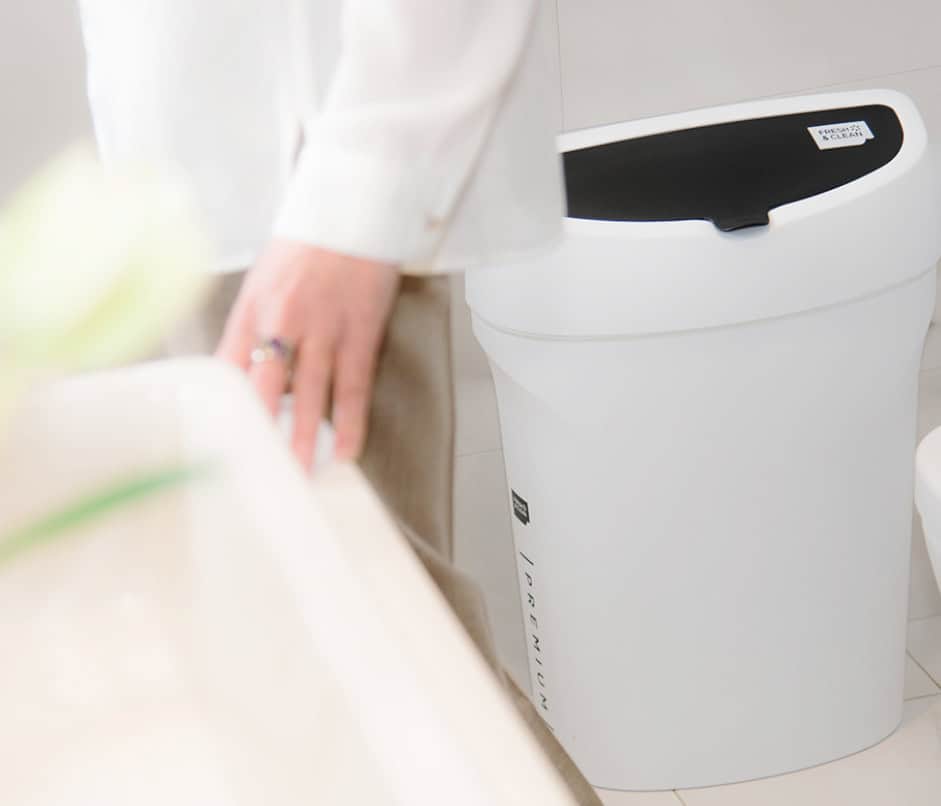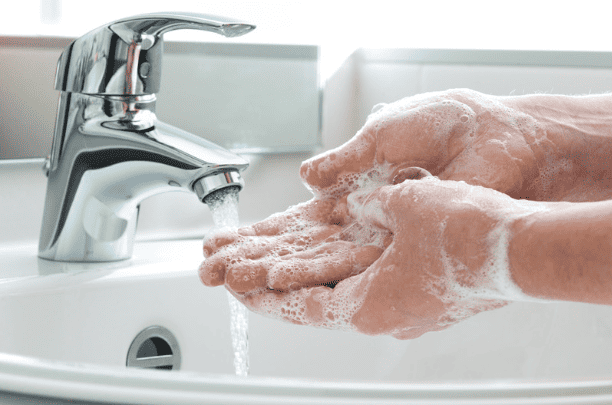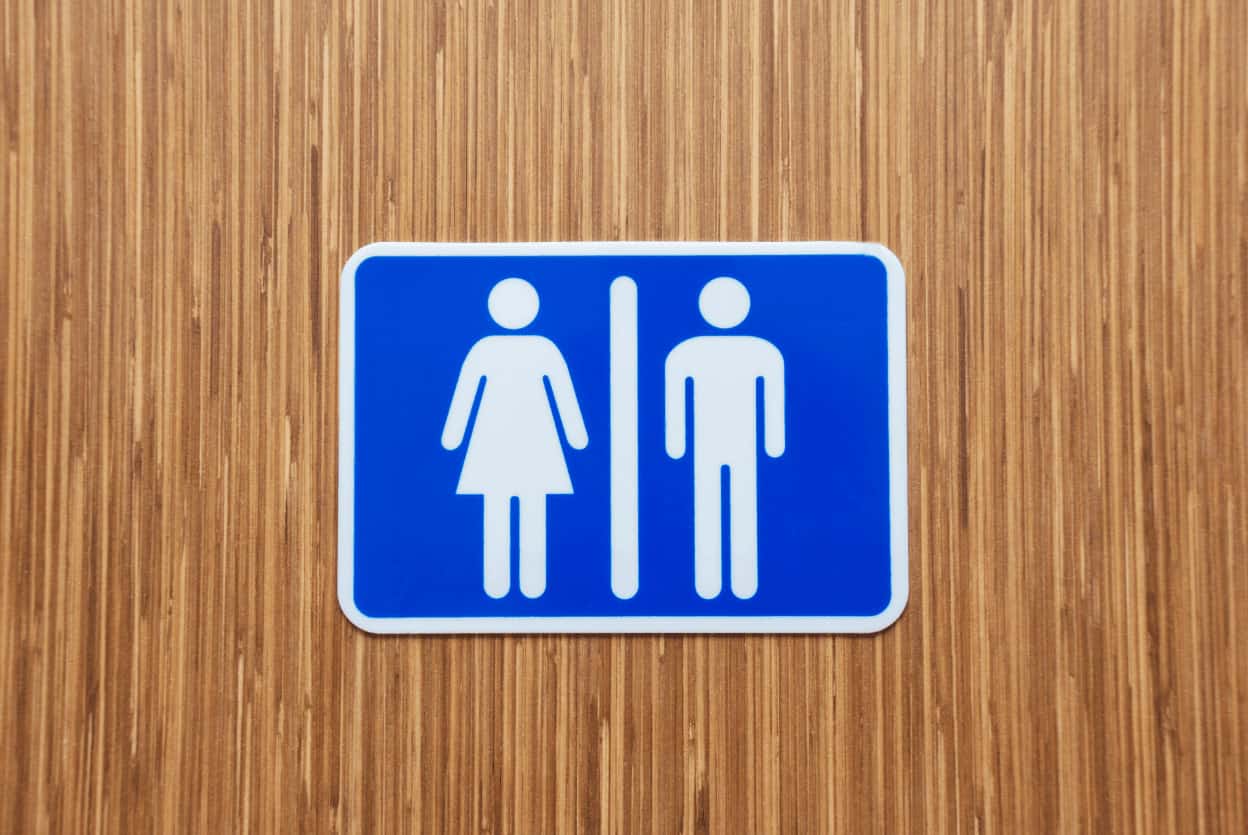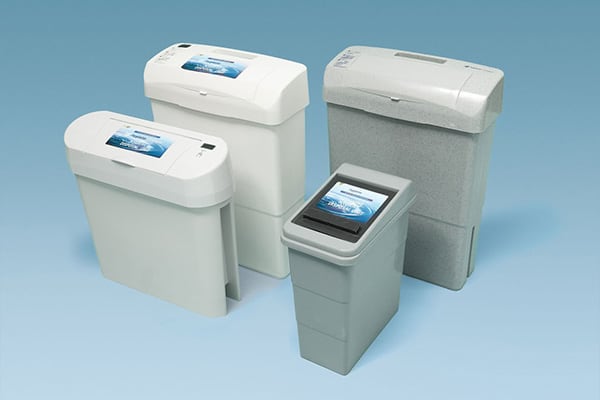There are well-documented links between a lack of access to basic needs, such as sanitation or personal care items and their effects on a person’s mental health and wellbeing. Much of this research focuses on the lack of sanitation facilities, access to hygiene care products or the anxieties that may stem from disability.
Sanitary bins are vital to addressing these causes of distress in the workplace or public facility.
The Role Of Sanitary Bins In Workplace Mental Health
Sanitary bins directly relate to the adequate provision of sanitation/toilet facilities, the safe disposal of required hygiene products and help create inclusive washrooms for people with additional hygiene requirements.
While sanitary bins in the workplace are commonly associated with providing sanitary disposal for feminine hygiene products, their impact on mental health can be felt regardless of gender.
Sanitary bins help meet the needs of people with chronic conditions or disabilities across a business’s washroom facilities.
People with chronic conditions, whether they are children, adults or elderly, are much more likely to experience anxiety or depression than people without a chronic condition. This anxiety can often relate to their condition’s unpredictability, effect on their daily lives or judgement from their peers.
For many with chronic conditions, these anxieties can cause them to avoid many aspects of their lives, including work and social activities.
Studies have observed about 57% of Australian men living with incontinence intentionally hide their condition, and 50% avoided situations where they could not easily access a toilet. People with incontinence often suffer in silence, and many workplaces may have employees or guests who require appropriate facilities but have not voiced their needs.
About 20 to 43% of Australians with incontinence may also have depression.
Sanitary and incontinence bins help ensure your business’s washrooms provide employees and guests with the sanitation facilities they need, helping to reduce anxiety for improved mental health and wellbeing.
Medical Conditions That Sanitary Bins May Help Manage
In addition to commonly understood reasons like menstruation, there are any number of medical reasons a person may benefit from access to a sanitary or incontinence bin and additional personal care items in their workplace or public facility washrooms, including:
- Bladder/Bowel Conditions: Interstitial cystitis, Crohn’s disease, or ulcerative colitis may all cause incontinence.
- Cancer: Prostate cancer and its treatments, chemotherapy, and radiation treatments may all cause incontinence.
- Disabilities: Conditions that limit mobility may require personal care products.
- Gynaecological Conditions: Infections or postoperative care.
- Menstrual Conditions: Such as Polycystic Ovary Syndrome (PCOS) can affect menstrual patterns.
- Postpartum Conditions: Resulting bleeding, discharge or episiotomy recovery.
- Pregnancy: Gestational diabetes (may contribute to incontinence)
- Stoma Care: People with colostomy or ileostomy may need to dispose of ostomy products.
- Surgical: Various surgeries can contribute to incontinence.
- Urinary or Faecal Incontinence: This may result from other conditions.
People from all walks of life may require sanitary bins to help manage their conditions at work, the supermarket or out socialising. By including sanitary bins in their washrooms, businesses help make their facilities more accessible and inclusive of the people who may interact with their facilities.
Alongside the potential benefits for your employees and guests, there are legal requirements relating to an employer’s duty of care regarding the hygienic disposal of sanitary waste.
With over 25 years of experience providing hygiene solutions across WA, Hygiene Concepts is one of Perth’s leading hygiene solutions companies. Contact us for any of your Perth sanitary bin or incontinence bin needs.





